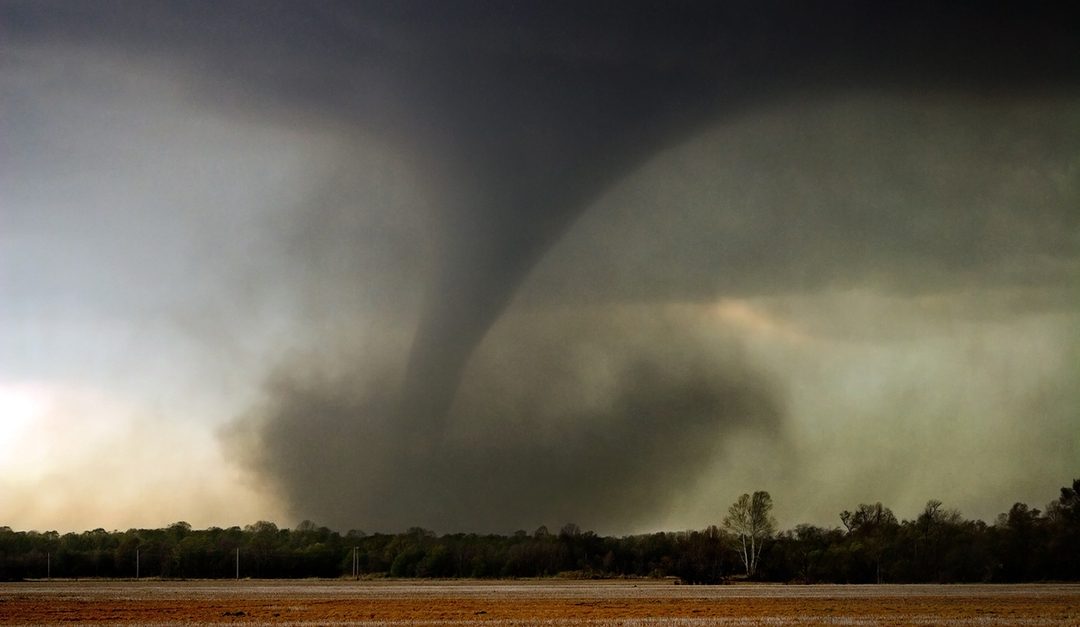For many across the U.S., warning sirens and deadly-force spiraling winds are just another part of life. An average of 1,253 tornadoes spawn in the U.S. every year, according to the National Oceanic and Atmospheric Administration (NOAA), and according to National Geographic, tornadoes do an average of $500 million worth of damage every year in the U.S.
No small event, tornadoes impact the lives of millions of homeowners across the nation. Recently, two tornadoes touched down in Shiawasee County in Detroit, Mich., damaging over 70 homes and businesses, reported The Weather Channel. In March, tornados hit areas of Central Alabama, killing at least 23 people, and destroying several houses and mobile homes in Lee County, according to the New York Times.
Safety Tips
For those living in tornado-prone areas or who are thinking of relocating, being knowledgeable about tornado safety can save lives. These are the most significant steps homeowners can take should they be at risk, according to Ready.gov:
- Stay aware. Watch or listen to weather reports. Sign up for your local warning system. Both the Emergency Alert System and NOAA provide alerts.
- Know the signs. Look out for rotating, funnel-shaped clouds and heavy winds. Listen for a loud roar that sounds similar to a freight train.
- Seek safe shelter. Find a sturdy building and stay in a windowless safe room, basement or cellar, staying away from outside walls. Crouch down and place arms over head and neck.
- Be cautious. After a tornado has passed through, stay away from fallen power lines or broken utility lines. Do not enter a damaged home unless given the go-ahead from authorities. Listen to alert systems for updated information.
Industry Impact
What does real estate look like in these areas? Joey Crampton, a REALTOR® with Scarborough & Associates, LLC with nearly a decade of industry experience within the tornado-prone state of Alabama, shares his insights with RISMedia.
Q: Tell us about the natural disasters that affect your area and the threat tornados pose.
A: Our state has the distinct predisposition of experiencing both major hurricanes during our annual hurricane seasons—more of a concern in the lower half of the state—and of course tornados, which are a concern anywhere in our state, without as much notice as an incoming hurricane. We may experience an actual hurricane threat annually, with hurricanes making landfall every few years. Tornados, in contrast, are more in line with anywhere from 2-5 a year statewide that are actually noteworthy, but weather experts would surely say that the number of actual tornados formed are much higher in our state.
Q: What are some of the challenges that come along with living in areas impacted by tornadoes?
A: The challenges that come with living in a tornado-prone area are simply learning to adapt and move forward when disaster strikes. Lives are of the utmost importance, whereas the properties themselves can usually be fixed unless they hold unique or historical characteristics, which is always a tragedy in itself to see those damaged or lost. We have a lot of historical homes here that cannot be duplicated or replaced.
The most important thing is the short notice and not always knowing. I find that most of our most devastating tornados evolve from a simple weather report indicating heavy rain and thunderstorms to a short-notice “Everyone hide in the closet to save yourselves” kind of emergency.
Q: Can you talk about the obstacles faced with property damages and insurance claims?
A: Anything from fallen trees, broken windows, damaged roofs, blown siding and even landscaping damage can create headaches for property owners. The industry itself does what it can to provide information to people on getting to available shelter as needed, but other than that, there are no known industry-specific measures in place to help homeowners recover from tornados. It becomes a community generosity thing, a government/FEMA assistance issue and of course applicable hazard insurance.
Q: What’s the impact on real estate and housing?
A: Whenever a property currently under contract and scheduled to close is damaged, the pending transaction is typically halted until repairs and other agreeable resolutions can be made. If the property is a complete loss, a contract would be likely dissolved entirely. In this case, certainly a local real estate attorney handling the closing would be informed immediately and their advice relied on for the next steps.
When these tornados strike, they can and do impact new development and new construction. They can devastate properties under construction, causing delays to grand openings and target closing dates. This also poses problems for agents like myself, who are trying to show because no one wants to get out in stormy weather and look.
Q: What was the community response to the recent Alabama tornadoes?
A: The local community has stepped up in a big way. People have certainly sprung into action and offered help, have pledged money and have formed social media support groups for volunteers to register and offer helping hands. Our local church leaders and business owners have donated and helped raise much-needed supplies and shelter for those just impacted. Relating to real estate, I have seen many of these business owners, churches and even private homeowners offering complete strangers a place of refuge to get back on their feet, helping with transportation, along with food and supplies.
 Liz Dominguez is RISMedia’s associate content editor. Email her your real estate news ideas at ldominguez@rismedia.com.
Liz Dominguez is RISMedia’s associate content editor. Email her your real estate news ideas at ldominguez@rismedia.com.



